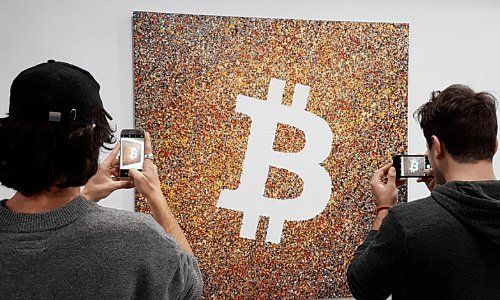What Has Bitcoin Done for Banking?
As bitcoin nears its tenth birthday, the hype around this currency is in stark contrast to its achievements. And yet – cryptocurrencies have arrived. finews.asia tallies what bitcoin has done for banks.
It was October 31 2008, when a mysterious document titled «Bitcoin: A Peer-to-Peer Electronic Cash System» by an unknown author named Satoshi Nakamoto began circulating on the internet. The coin's official birth was the following January, when Satoshi Nakamoto, whose identity remains a mystery to cryptocurrency insiders, created the first bitcoins on the blockchain.
Ten years later, retail clients in Korea are among the most frenzied buyers of bitcoin: the cryptocurrency has bestowed vast wealth on many people, and made at least a few far poorer. Bitcoin represents nothing less than the vision of an overthrow of the traditional financial system revolution – or at least a new currency and asset class.
Lagging Other Finance Tech
In nine of its ten years, bitcoin lived in the shadows, only a topic for a few technology geeks and libertarian thinkers. Last year, the token's value exploded to $20,000 – today, bitcoin trades above $5,000.
In ten years, other technical advances in finance like cash machines, Paypal, or credit cards achieved far more than bitcoin has. Not to mention smartphones, which have fundamentally altered consumer and social behavior. By contrast, bitcoin hasn't actually hit its goal of establishing a new transaction currency instead of cash.
Changing Banking
To be sure, bitcoin and other cryptocurrencies do have a foot in the door of the financial world. Bitcoin has changed banking dramatically – in ten primary ways, as tallied by finews.asia:
1. Bad Bitcoin...

As bitcoin’s price surged and veered in recent years, top bankers including J.P. Morgan boss Jamie Dimon and UBS Chairman Axel Weber were quick to slam the cryptocurrency as a scam or lacking in value.
Oddly, the bitcoin hype seemed to do traditional finance, still fighting to restore its crisis-tarnished reputation, good. Should bitcoin be eventually unmasked as worthless, banks will be the last ones held responsible for telling their clients to fall for the coin hype.
2. ...But Good Blockchain
The banker's opt-repeated mantra that bitcoin isn't to be trusted was quickly followed by a resounding endorsement of blockchain technology and its promise for banking. Except that the two things are inextricably intertwined: without bitcoin as the first notable financial development based on the underlying blockchain technology, bankers would be far less interested in distributed ledgers today.
Since bitcoin's emergence, nearly every major bank is experimenting with blockchain technology – with mixed success. Most are looking for efficiency gains. Bulky and risky transactions like consortium loans, bond-trading, and issuing new stocks can be dramatically sped up with the new technology – at a fraction of the cost. In a world of eroding margins and constant panic about disruption, blockchain could be banking's savior.
3. High Alert for Disruption
There is an obvious reason for banks to reject bitcoin out of hand: the digital currency represents a financial and transaction system which makes them superfluous as intermediaries or middlemen. A cruel irony is that due to inherent construction errors, bitcoin isn't particularly suited to replace fiat as legal tender. But the potential of coins, tokens, and digital funds has put the fear of disruption into banks – thanks to bitcoin.
4. Get Rick Quick – Bankers Too

Bitcoin has spawned dozens of millionaires – for now. From Barry Silbert to Bitcoin Suisse founder Niklas Nikolajsen, many early adopters have partly cashed out. Bentley customized its signature «Flying 'B'», mascot into a bitcoin symbol for Nikolajsen, who carries a physical bitcoin in his pocket as a talisman.
Countless bankers – who invested first out of curiosity, then conviction – were among the early adopters. Today, these bankers populate the hoards of blockchain and crypto start-ups in Zug, Zurich or Singapore and Hong Kong.
Seasoned bankers are moving to «the other side» nearly every day. Bitcoin stands for a completely new token economy, and promises a glimpse of the future of finance.
5. New Wording for Bankers
What should banks call bitcoin – an intangible asset which exists only in the digital world, alongside other cryptocurrencies? The term «digital assets» is standard parlance today for what other people call, more simply, crypto.
Ten years after the birth of bitcoin, more than 2,000 of these digital assets, or cryptocurrencies, exist – to speak only of the tradable coins. Which one will prevail? Nobody knows.
- Page 1 of 3
- Next >>



























